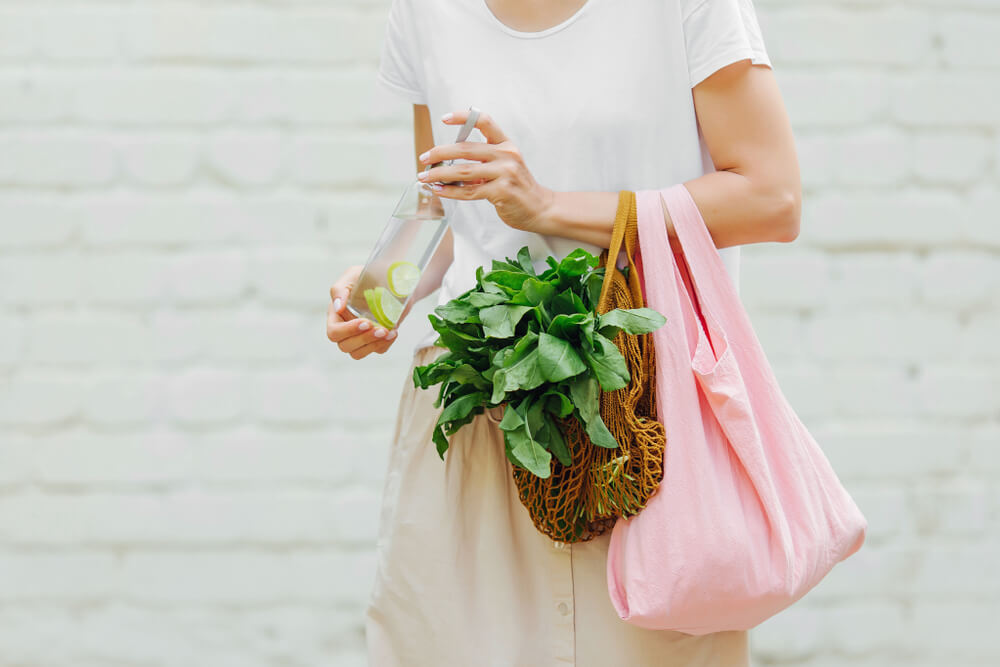Lifestyle
18 Easy Ways to Use Less Plastic
We have all seen images of beaches covered in trash. We inherently know we need to do something about it, but then you are dying of thirst and grab a bottle of water at the nearest shop.
Your take-out dinner has plastic cutlery, but you only use it once in a while, so you don’t stop to consider the effect it has on the environment.
As it turns out, we should all think about the effects of plastic a little bit more.
Some startling facts may wake us from our convenient plastic slumber: it takes about 1,000 years for a single plastic bag to degrade, not to mention the devastating effects our plastic use has on our oceans and marine life. Another statistic: 100,000 marine animals die every year due to plastic pollution.
Without going into too much detail that will depress us all, let’s look on the bright side and know that if each of us makes a small change today, it can have a considerable effect on tomorrow.
1) Reusable Eco-Friendly Bags
When you head to the super market remember to grab your reusable shopping bags.
Turning this into a habit will not only reduce the amount of waste you have in your home; it will also help the environment.
You will be pleasantly surprised to see how many items can fit into one of your bags in comparison to how many plastic bags you would normally use for the same amount.
It will also decrease the amount of time spent unloading the groceries from your car.
2) Reusable Produce Bags
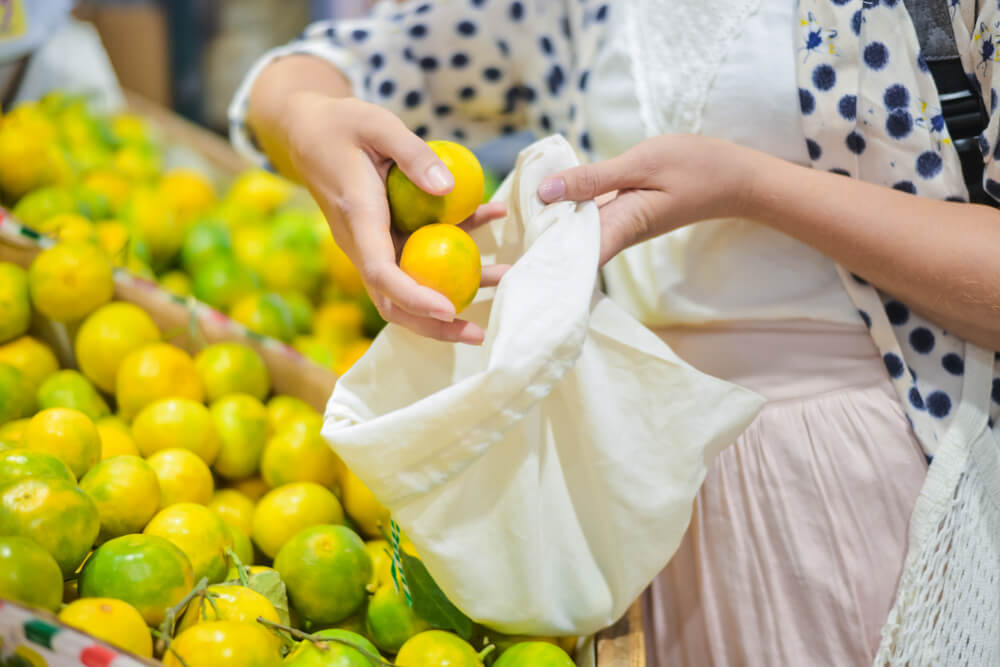
Consider all of the plastic bags you end up using from the produce department.
There a few good alternatives: reuse some of your old bags, go without produce bags, or invest in a set of reusable ones.
Zero-waste, and your carbon footprint is already getting smaller.
3) Reusable Water Bottles
Increase your water intake while cutting down on plastic by using your water bottle. Once you form the habit of keeping your water bottle handy, you will think twice about purchasing a bottle.
With all of that water, without wasted plastic, you will look and feel amazing, have saved a bit of money, and helped the world’s plastic pollution problem. A win-win-win!
4) Travel Coffee Mug
This one is pretty easy, too, if you regularly purchase coffee on the go. Remember to take your travel mug as part of your daily routine.
Most coffee bars will be happy to fill your cup as it saves them money and cuts down on waste.
5) Stop Your Use of Plastic Straws
A straw is one item that shouldn’t be too hard to eliminate from your life. You certainly don’t need one when you are sitting down for a meal at home or in a restaurant.
Straws are convenient when traveling, and you don’t want a mess in the car, necessary for those in hospitals who may have difficulty drinking and, well, I think that’s it.
Due to the smallness of the straw, we rarely get them into the recycling bin, and once they reach the ocean, it wreaks havoc on marine life.
If you must use a straw, consider purchasing a straw made of paper, glass or stainless steel.
Rethink the small things that have an enormous impact on our Earth.
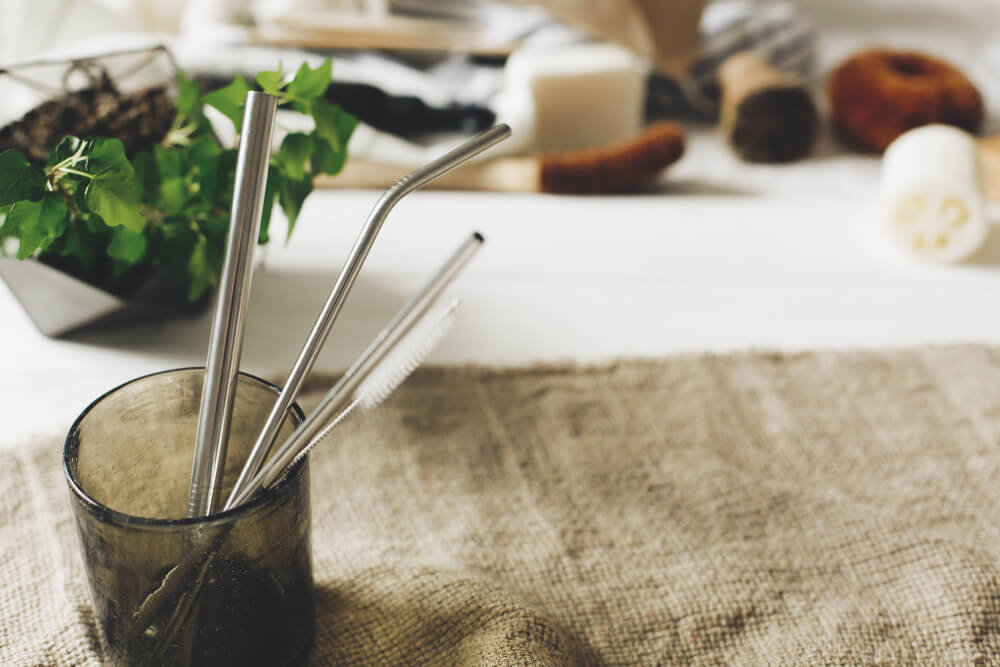
6) No Plastic Cutlery
Hopefully, you never use plastic utensils at home, and you are so good that you have an extra stainless-steel knife and fork in your desk drawer at the office.
I realize most of us are not going to travel around with a knife and fork in our purse, but consider how many times it is given to you when you don’t need it.
Unless truly needed, request that they not be added to your bag. If you do use them, wash and use them again.
7) Pick Paper over Plastic
This one is easy.
Always opt for the disposable paper plates and cups in place of the plastic.
Hopefully, you are only using these for special occasions like a cook-out or picnic, and don’t use these regularly at home.
We need to save our trees too.
Here are some alternative ways to shrinking your plastic intake at home:
8) Bar of Soap
Consider switching from a shower gel or body wash to a bar of soap.
There are so many soaps on the market to choose from that will leave you feeling fresh.
Soaps have minimal packaging, usually wrapped in paper or a box.
Cutting out the plastic bottle should make you feel a little cleaner.
9) Shampoo and Conditioner Bars
These minimalist bars carry a powerful punch without
hurting the environment.
- Most come package free or wrapped in paper.
- These little bars are more concentrated, so you use less, and they last longer than their bottled counterparts.
- Great for travel and TSA approved.
- Reduces the clutter in your bathroom.
10) Cotton Swabs
If you need to keep cotton swabs on hand, consider buying the ones without the plastic.
Paper is so much easier to erode.
11) Bamboo Products
Bamboo is naturally durable, pest-resistant, therefore, needs no pesticides to grow, and is a regenerating grass that grows much faster than trees.
Chemical-free bamboo products are recyclable due to being naturally biodegradable, so you can toss it in the compost pile when the product is no longer needed.
There is an array of bamboo products on the market, from hairbrushes and toothbrushes to flooring.
When shopping for the softer side of bamboo, like bed sheets or towels, you may want to double-check to see if the manufacturer uses green practices.
12) Switch to the Menstrual Cup
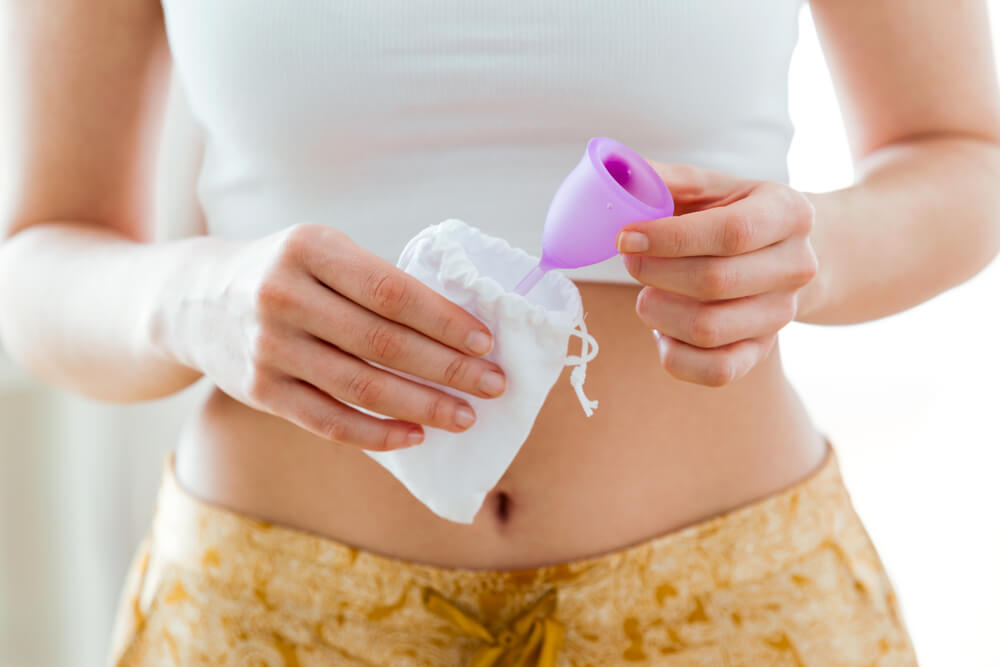
Check out some reviews online and see if the menstrual cup is the right choice for you. Besides saving a bit of money every month, you will be contributing to zero waste.
Sound pretty good? Here are some other benefits:
- You can wear the cup up to 12 plus hours without worry.
- No leakage if inserted correctly.
- No string attached, so, no more worries when sporting your bikini.
- No more pads.
- No more period stains.
- Non-toxic.
13) Reusable Travel Containers
If you travel a lot, consider purchasing reusable travel-sized containers to fill with your products instead of purchasing the mini versions.
Leave the ones in the hotel room alone and know by not using them, you are cutting down on waste.
14) Disposable Razors
Once you finish off your current pack of disposables, consider investing in a superior razor.
Only having to buy razor blades will keep you looking smooth, save a little change, and you won’t be donating as much plastic to a landfill.
15) Look for Recyclable and Disregard the Disposable
Disposable isn’t actually disposable after all. Our trash doesn’t magically disappear.
It does have to go somewhere, so we should put forth more effort into producing less of it.
Let’s look at some everyday items we could probably replace with lasting, reusable items.
- Replace disposable plastic pens with fountain pens, or at least the pens where you replace the ink with a cartridge.
- No more disposable lighters. If you need a lighter, pick out a swank zippo or antique lighter and fill it with lighter fluid. Looks cool and no more waste.
- Diapers. Choosing cloth over disposable is no picnic, but we thank you.
- Balloons and confetti are not great for the environment. With a little ingenuity, you can come up with some fantastic decorations from items found at home without purchasing any new plastic you have no use for when the party is over.
- When you run out of the plastic bags you already have on hand, consider purchasing biodegradable bags for picking up your pet’s poo.
16) What’s in Your Kitchen?
Walk around your kitchen and take stock of the amount of plastic used in your daily life.
Salad dressings, condiments, cooking oils, spices, and the list continues. It isn’t impossible to only purchase items without any plastic, but it would be a difficult challenge.
Consider making a few changes here and there, and be sure to recycle all of your other plastics. Your extra effort will make a significant impact on the environment.
Here are a few easy changes to consider:
- If you purchase frozen food entrees, rethink how many you buy. It doesn’t take too long to make a quick meal that will be healthier and produce less waste.
- When you run out of your window cleaner, upcycle the bottle and pour in water and vinegar for a greener clean.
- There are alternatives to your plastic kitchen garbage bags. Look for recycled kitchen trash bags or compostable trash bags.
- Consider using more glass in your kitchen for leftovers once your old plastic containers start to wear out.
- Plastic wrap and bags are undoubtedly hard to give up. Silicone products on the market look like great alternatives as they are easy to clean and last for years. Some consider silicone as another plastic, so seek out what would work best for you, and please, don’t buy more than you need.
- Avoid non-stick cookware due to the toxic chemicals released when heated. Consider investing in stainless steel or cast-iron cookware.
17) Synthetic Clothing – Who Knew!
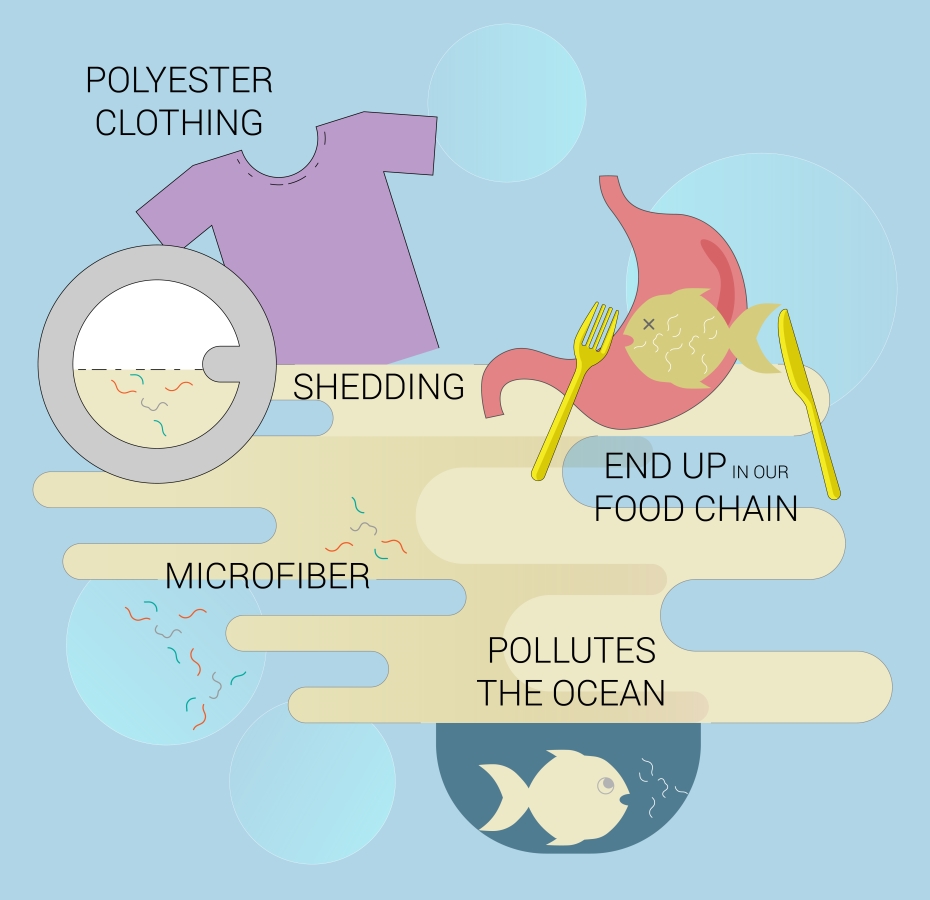
Synthetic clothing is a contributor to the plastic pollution problem our world is facing.
With every load of laundry, our clothes are shedding microplastics so small that they eventually find their way into the ocean.
While microplastic is toxic to marine life, it will also be toxic to us.
Remember the food chain?
While the scientists are looking for solutions to this problem, we can all lend a hand in the reduction of microplastics ruining our waters.
Consider some of these options:
- Wear non-synthetic clothing like cotton, silk, hemp, and wool. Clothing in these natural fibers will cost a bit more, so buy smart and buy less.
- Don’t wash after every wear. The less we launder, the less waste we produce.
- Microfiber washing bags will catch the microplastics so that you can dispose of them in the trash.
18) Green Gifts
Who doesn’t love the gift of dinner at a favorite restaurant?
Massage or manicure?
How about a membership to your local zoo, botanical gardens, or favorite museum?
Make fun memories for others with your gifts this year, unless another synthetic fiber sweater is genuinely what they want.
Plastic pollution is an enormous environmental issue that will only keep growing if we don’t do our part to slow it down.
Be aware of how much plastic waste you are producing each day, and consciously try to cut down.
Start small with one change this week and add a new one next week.
Give up the plastic straw, get your water bottle out, and say no to single-use plastics.

